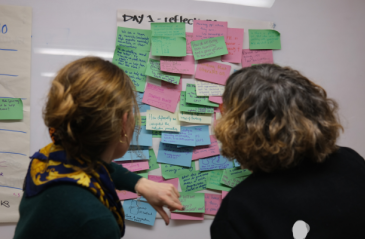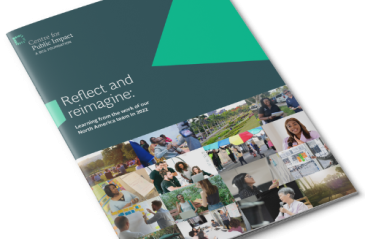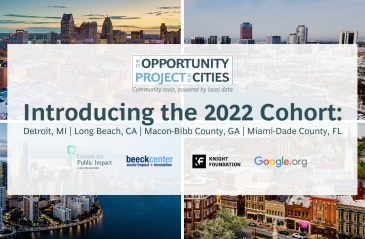
Five things we recently learned about government failure

It's time for a radical decoupling of research and learning in British universities
Share articleGovt should seek to remove barriers in universities' path to conduct the research society needs
Share articleGovt holds the “nuclear” option of removing an institution’s ability to award degrees
Share articleWe put our vision for government into practice through learning partner projects that align with our values and help reimagine government so that it works for everyone.
The university system is treasured as a sparkling jewel in the crown of UK plc. And with total revenues of £33bn, undergraduate applications growing by 50% over the decade, and a research community the envy of the world, it appears to be in rude health.
So this might seem a strange time to be proposing a radical decoupling of research and learning in order to relieve our top universities of the chore of educating our future workforce.
Yet the headline figures mask major flaws in a system that conducts much world-class research, but delivers a set of undergraduate experiences that raise serious questions of relevance and quality. Students are starting to grumble. Over 60% feel that all or some elements of their course are worse than expected and around a third feel they get poor or very poor value for money. Graduate employers are equally disillusioned, over 50% reporting that “few” or “none” of the graduates they recruit are “work ready”. Despite 250,000 UK graduates with a 2:1 or better, The Times' 100 best graduate employers are still left with 1,000 vacancies each year, failing to find the right quality.
Historically, politicians tread carefully in this area, preferring to marshal debate towards tuition fees or access for the socioeconomically disadvantaged, pointing to countless studies which show correlation (but not causation) between a university degree and higher earnings in later life. However, Jo Johnson, the UK's minister for universities, science, research and innovation, has been bolder. A white paper introduced in spring of this year proposed a Teaching Excellence Framework (TEF), which would reward high performers with the right to increase tuition fees, albeit limited to the rate of inflation.
Johnson's intentions are noble, but the TEF will be impotent for three main reasons.
Firstly, the incentives are not serious enough, particularly at the elite end of the spectrum. Tuition fees accounted for just 17% of Oxbridge's income in 2014, the most recent year for which we have data. Improving teacher quality is an undertaking that takes time, resources, expertise and determined leadership, and will likely require a larger prize than a potential revenue upside of around 0.3%.
Secondly, career progression for academics depends predominantly on their ability to publish research that will also generate associated funding. Any change would be to compromise on research quality just at a time when Britain is more sensitive than ever to its status as a natural home for the world's best brains.
Finally, aspiring undergraduates are relatively ill-informed, one-time-only consumers, who place brand value high on their list of considerations. And what brands these are! Possibly the most powerful of any industry, they are both deeply personal for the “buyer” and also uniquely old, established over several decades or even centuries. When we compared the entry tariff (the exam results you need to get in) with the age of an institution, we found a direct correlation. Ingrained perceptions will be hard to shift, and the TEF league table faces an uphill battle for relevance.
The UK's top universities are unlikely to shift from a focus on research towards teaching, and nor should they. The answer is not to try to incentivise them to be better teachers but rather the opposite. Our government should strive to remove any barriers in their path to conduct the research our society needs.
The government holds a surprisingly powerful set of levers, including the “nuclear” option of removing an institution's ability to award degrees. In theory, this is up for review every six years, but in practice no government has exercised this power in the sector's 900-year history. Other levers include the student cap, which limits the number of students participating in any given course. Recent legislation lifted this cap, but what if it were to be radically lowered? My own mechanical engineering undergraduate class at Imperial was 130 strong. If it were reduced to 10% of that size, the faculty could entirely reimagine the course, replacing stack 'em high lectures with a blend of online learning and hands-on research. The 13 remaining students could then join PhDs on existing research teams, working with live problems.
What would happen to the other 90%? Specialist learning institutions would be needed to fill the gap, institutions that help transform students' life trajectory through learning rather than through brand association. Students value instructors who have relevant industry and professional experience and who have received training in how to teach, and these new entrants could provide such instructors.
Here, Jo Johnson's white paper has more promise. His second main proposal is to lower barriers to new entrants, reducing the hurdles to becoming a recognised “university” and being able to award accredited degrees. To truly transform the sector, new entrants will need a bold, distinctive offer that can circumvent the “brand challenge” and attract top applicants to study truly prestigious courses. Close partnerships with leading organisations that students might one day want to work for is a possible starting point.
Even so, big questions remain. Would new entrants be sustainable at current fee levels? We can only learn so much from incumbents, as university economics are notoriously opaque, and cross-subsidisation is rife between subjects and also between research and teaching. Scale clearly helps, but few have embraced the possibilities of technology as fully as some new entrants abroad, most notably Minerva in the US.
And what of the humanities, where the links to future careers are more tenuous? Today, only 55% of humanities students at the top 13 institutions will be employed in a professional role within six months of graduating, and then at a starting salary around £8,000 less than their non-humanities peers, according to the Sutton Trust. So they might head the queue for a new offer, perhaps organised around an issue of global importance rather than a discrete academic subject.
New entrants will be a vital catalyst in changing the most monolithic of industries, but government has an active role to play in creating the conditions. And one problem is easy to solve. Where will the new entrants find their real estate? Simple. Someone has to fill all those empty student rooms in Cambridge, Edinburgh, Exeter and Bath.










